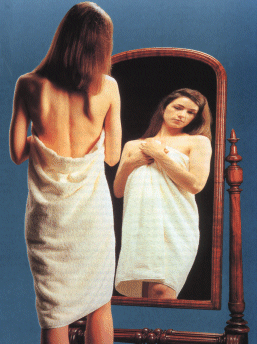Body Image
Body Image Disorder
Body Image Disorder (Body Dysmorphic Disorder) is an excessive concern about and preoccupation with a perceived defect of the person’s physical features.
Body image disorder or “imagined ugliness.” is a chronic illness that requires treatment.
Research suggests that naturally occurring brain chemicals called neurotransmitters, may play a role in causing body image disorder. Some genetic studies show that body image disorder is more common in people whose biological family members also have the condition. Negative life experiences about body or self-image such as childhood teasing, societal expectations of beauty etc., may trigger the disorder.

The disorder may be a part of or may occur along with obsessive-compulsive disorder, depression and other mood disorders, anxiety disorders, eating disorders, and Social phobia.
It cab result in low self-esteem, social isolation, difficulty attending work or school, lack of close relationships, unnecessary medical procedures, especially cosmetic surgery, suicidal thoughts, substance abuse, or alcoholism etc.
Treatment of body image disorder includes medication followed by or in conjunction with talk therapy.
Symptoms
A conviction about perceived flaws that results in imagining something about the body that’s not true, no matter how much evidence is provided that it is not so, including
- Preoccupation with physical appearance with excessive grooming
- Strong belief the there is an abnormality or defect that is result in ugliness or special notice by others
- Frequent examination in the mirror and comparison of appearance with that of others or, in extreme cases, avoidance of mirrors or refusal to appear in pictures
- The need to seek reassurance about appearance from others
- The need to wear excessive makeup or clothing to camouflage perceived flaws or frequent cosmetic procedures with little satisfaction
- Extreme self-consciousness
- Avoidance of social situations
